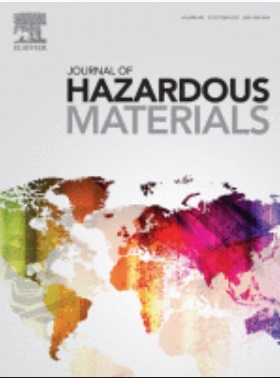This study is devoted to the evaluation of the influence of phosphate dopants on the reactivity of Nb
2O
5-based
nanomaterials in the combined catalytic activation of H
2O
2 and the elimination of
methylene blue (MB) from an aqueous solution via adsorption and
chemical degradation. For this purpose, several niobia-based catalysts doped with various amounts of phosphate were prepared by a facile hydrothermal method and subsequent
calcination. Phosphate doping was shown to strongly enhance the ability of Nb
2O
5 to activate H
2O
2, as well as to adsorb and degrade MB. The most pronounced differences in the reactivity of the parent Nb
2O
5 and phosphate-doped samples were observed under strongly acidic conditions (pH ~ 2.4), at which the most active modified catalysts (Nb/P molar ratio = 5/1) was approximately 6 times more efficient in the removal of MB. The observed enhancement of reactivity was attributed to the increased generation of singlet oxygen
1O
2, which was identified as the main
oxidizing agent responsible for efficient degradation of MB. To our knowledge, it is the first report revealing that phosphate doping of Nb
2O
5 resulted in an improved activity of niobia in the adsorption and degradation of
organic pollutants
